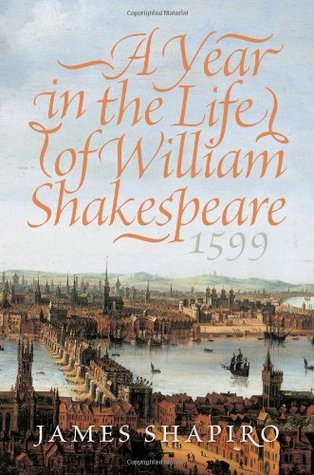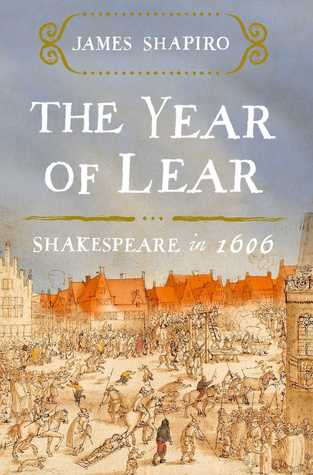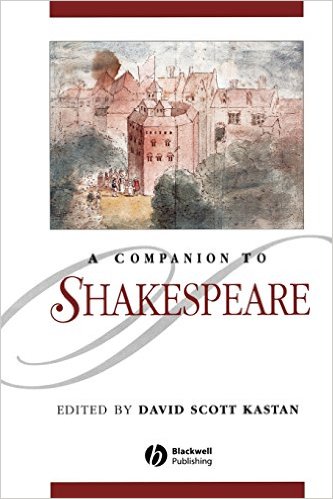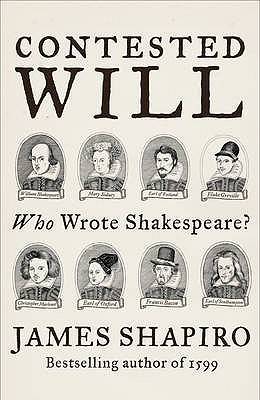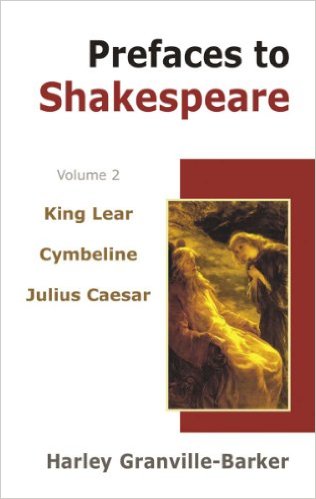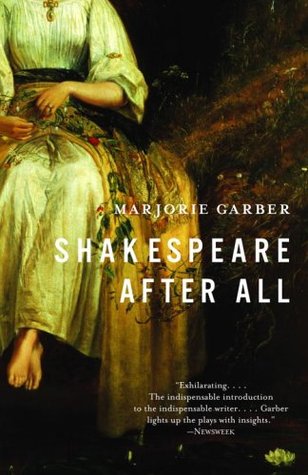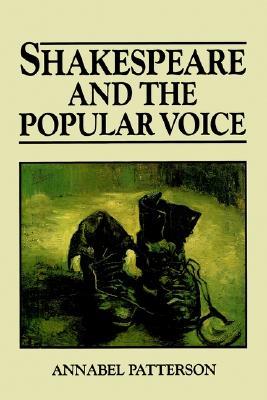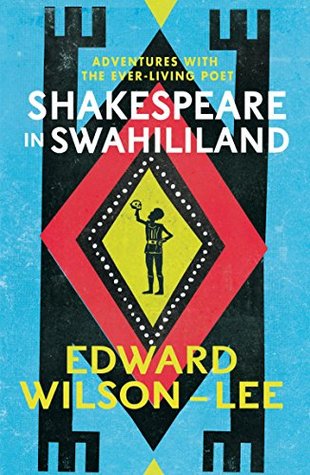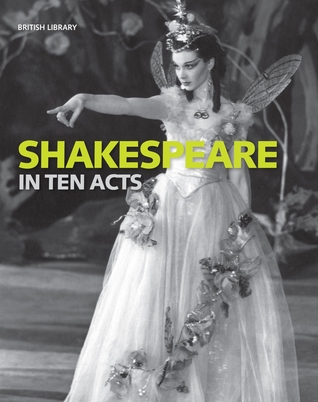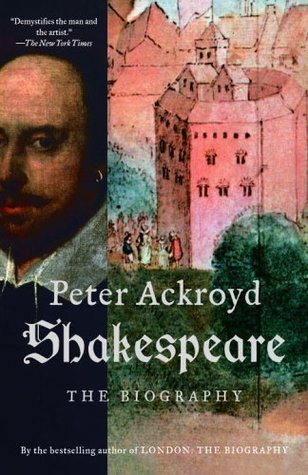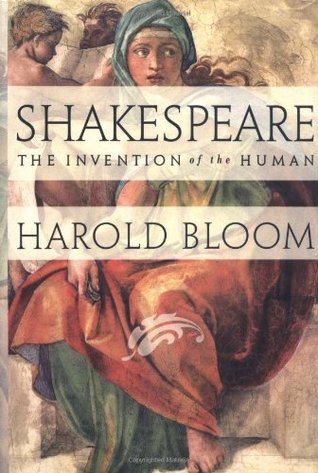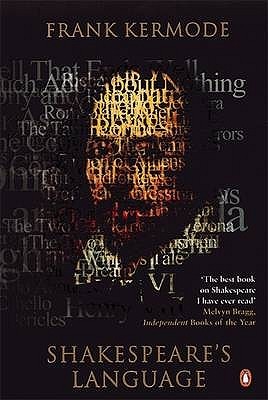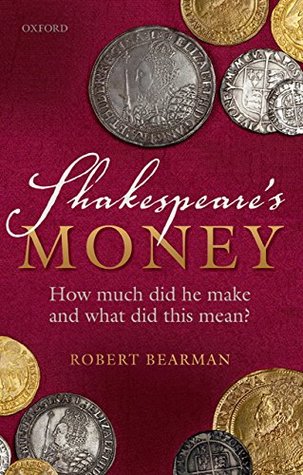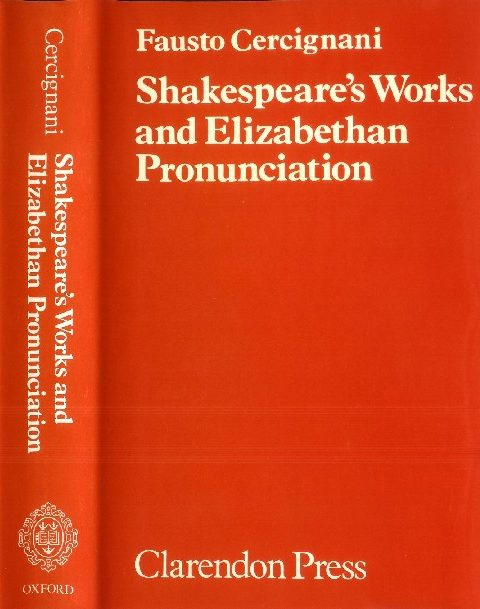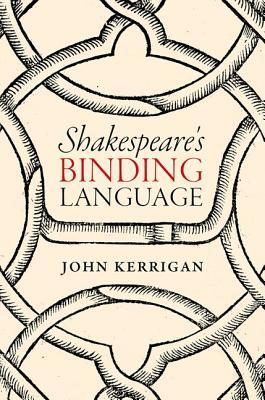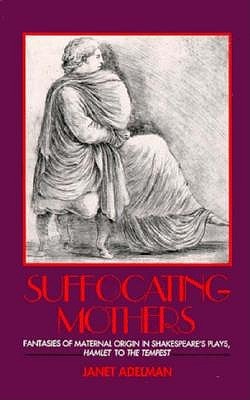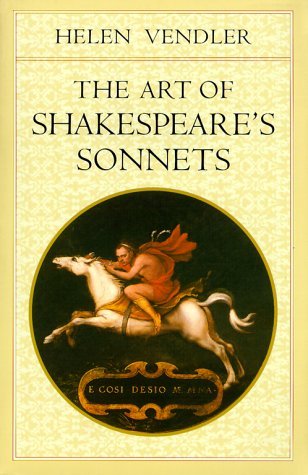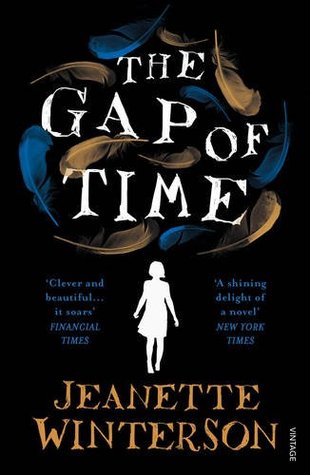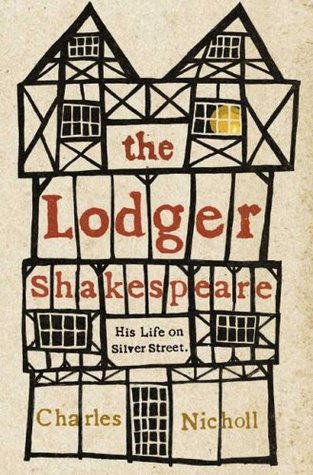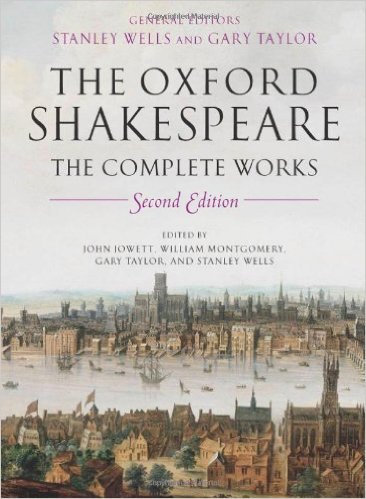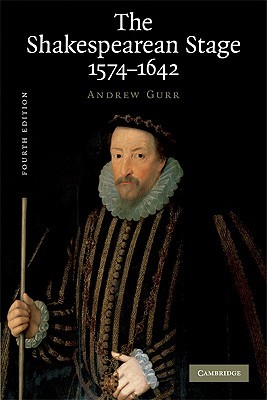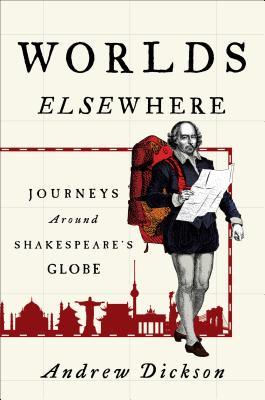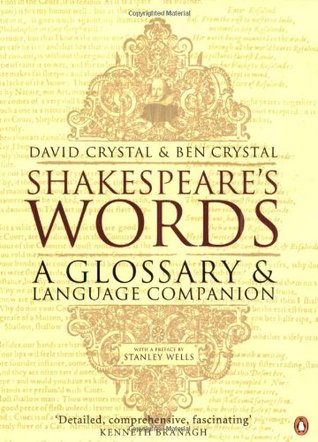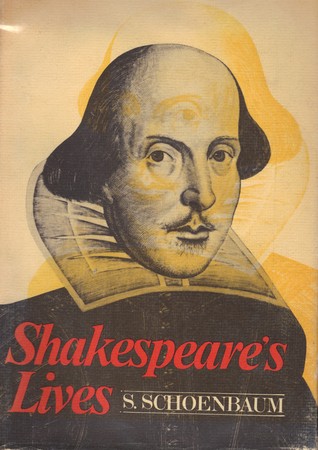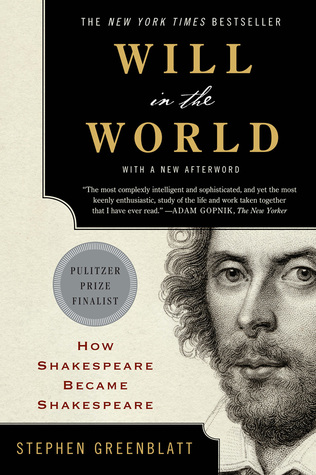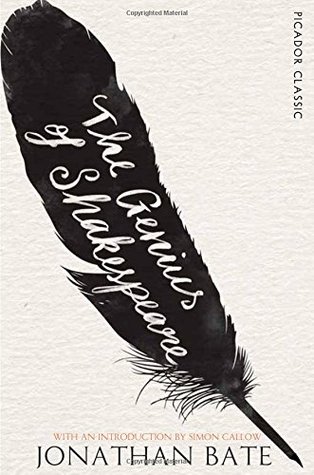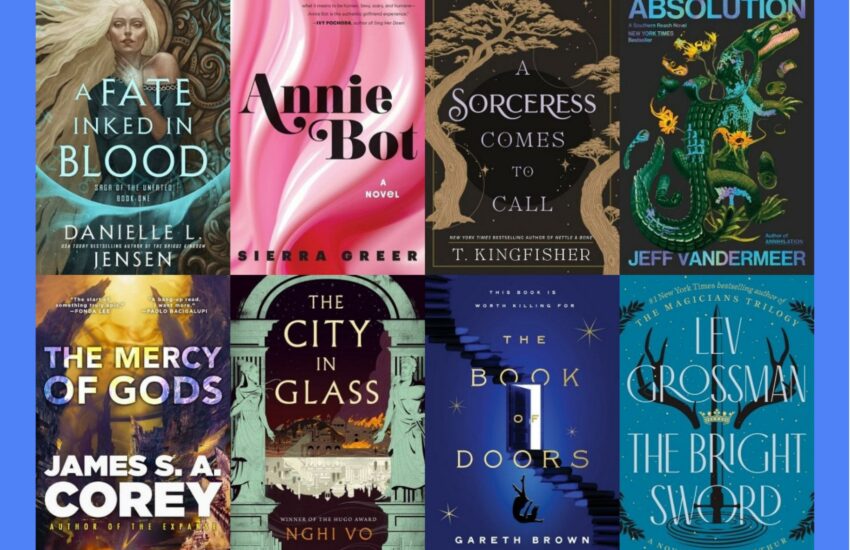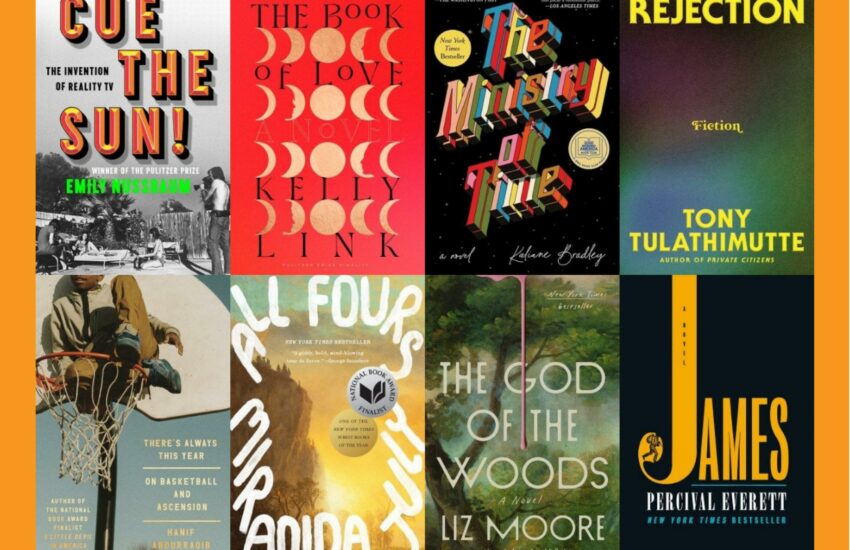The Best Books About Shakespeare
What are the best books about Shakespeare?” We looked at 210 of the top Shakespeare books, aggregating and ranking them so we could answer that very question!
Fame and notoriety are fleeting. Try and think who alive today would still be a name that is remembered and talked about 100, 500, and 1,000 years from now.
100 years is pretty easy, there are still tons of people from the early 1900’s that are known and talked about today, so you can figure that at least some political leaders, a few writers, artists and musicians, a scientists or two, and a handful of people from popular culture will be topics of interest and conversation. Think about Charles Lindbergh though, he was one of the biggest celebrities of the last 100 years, and he isn’t exactly a huge topic of interest these days (his Nazi sympathies probably didn’t help, but still). Jumping back 500 years and it gets even harder. There are certainly influential people from that era, but again people aren’t exactly talking about Ivan The Terrible in everyday conversation. Henery VIII, Elizabeth I, Martin Luther, and Copernicus do a bit better, but even then it is probably Da Vinci who is brought up the most in daily conversation today.
As for 1,000 years ago, try and name literally anyone that is still brought up in daily (non-history teacher) conversations. Genghis Khan was 800 years ago, but that is like choosing Napoleon for someone currently alive today. As you go back further it is the same. There are religious figures (Budda, Moses, Sri Krishna), a few rulers (Cleopatra, Ceasar, Alexander The Great), and some thinkers/writers (Confucius, Plato, Socrates, Homer), but even these are spaced hundreds, sometimes thousands of years apart. We may think that with all of the technology around today that more people will be remembered, and there will be better more durable ways of transferring data, but we honestly have no idea who or what will be remembered.
This overly long introduction is all pretty much here, because it seems like books and lists about Shakespeare are incredibly commonplace, and we wanted to highlight how weird that is for someone who wasn’t a religious or political figure and has been dead for a little over 400 years. Practically every writer or actor today will list Shakespeare as an influence, it seems like half the words and phrases we use today were created by the man, and it doesn’t seem like his influence or popularity will be going away anytime soon.
All together we found 210 of the ‘Best Books About Shakespeare’. That doesn’t include the hundreds of additional books released about him over just the last few years, just the cream of the crop. The top 27 books, all appearing on two or more lists, are below with images, links, and summaries. The additional 183 titles, as well as the sources we used, can be found in alphabetical order at the bottom of the page.
Be sure to check back later this week for our list of the best books influenced by Shakespeare!
Happy Scrolling!
Top 27 Books About Shakespeare Books
27 .) 1599: A Year in the Life of William Shakespeare by James Shapiro
- Modern Library
- Interesting Literature
“1599 was an epochal year for Shakespeare and England
Shakespeare wrote four of his most famous plays: Henry the Fifth, Julius Caesar, As You Like It, and, most remarkably, Hamlet; Elizabethans sent off an army to crush an Irish rebellion, weathered an Armada threat from Spain, gambled on a fledgling East India Company, and waited to see who would succeed their aging and childless queen.James Shapiro illuminates both Shakespeare’s staggering achievement and what Elizabethans experienced in the course of 1599, bringing together the news and the intrigue of the times with a wonderful evocation of how Shakespeare worked as an actor, businessman, and playwright. The result is an exceptionally immediate and gripping account of an inspiring moment in history.”
26 .) 1606: William Shakespeare and the Year of Lear by James Shapiro
- The Telegraph
- The Independent
“n the years leading up to 1606, Shakespeare’s great productivity had ebbed. But that year, at age forty-two, he found his footing again, finishing a play he had begun the previous autumn—King Lear—then writing two other great tragedies, Macbeth and Antony and Cleopatra.
It was a memorable year in England as well—a terrorist plot conceived by a small group of Catholic gentry had been uncovered at the last hour. The foiled Gunpowder Plot would have blown up the king and royal family along with the nation’s political and religious leadership. The aborted plot renewed anti-Catholic sentiment and laid bare divisions in the kingdom.
It was against this background that Shakespeare finished Lear, a play about a divided kingdom, then wrote a tragedy that turned on the murder of a Scottish king, Macbeth. He ended this astonishing year with a third masterpiece no less steeped in current events and concerns: Antony and Cleopatra.”
25 .) A Companion to Shakespeare by David Scott Kastan
- Bardweb
- Modern Library
“A Companion to Shakespeare is an indispensable book for students and teachers of Shakespeare, indeed for anyone with an interest in his plays.
Contains 28 newly commissioned essays written by the most distinguished historians and literary scholars
Situates Shakespeare in the historical and cultural conditions in which he wrote”
24 .) Contested Will: Who Wrote Shakespeare? by James Shapiro
- Clear Shakespeare
- Bardweb
For more than two hundred years after William Shakespeare’s death, no one doubted that he had written his plays. Since then, however, dozens of candidates have been proposed for the authorship of what is generally agreed to be the finest body of work by a writer in the English language. In this remarkable book, Shakespeare scholar James Shapiro explains when and why so many people began to question whether Shakespeare wrote his plays. Among the doubters have been such writers and thinkers as Sigmund Freud, Henry James, Mark Twain, and Helen Keller. It is a fascinating story, replete with forgeries, deception, false claimants, ciphers and codes, conspiracy theories—and a stunning failure to grasp the power of the imagination.
23 .) Prefaces to Shakespeare by Harley Granville-Barker
- Clear Shakespeare
- Modern Library
Harley Granville-Barker’s Prefaces to Shakespeare originally published in five series between 1927 and 1947 covering ten plays are collected in four volumes: Volume I (Hamlet), Volume II (King Lear, Cymbeline, Julius Caesar), Volume III (Antony and Cleopatra, Coriolanus) and Volume IV (Love’s Labour’s Lost, Romeo and Juliet, The Merchant of Venice, Othello). An actor, dramatist, producer and a profound Shakespearean scholar, Granville-Barker brought about a revolution in his Shakespearean productions in the first decade of the twentieth century by recapturing, with his experience and expertise, the spirit and vitality of the plays as they were produced on the Elizabethan stage.
22 .) Shakespeare After All by Marjorie Garber
- Clear Shakespeare
- Bardweb
“A brilliant and companionable tour through all thirty-eight plays, Shakespeare After All is the perfect introduction to the bard by one of the country’s foremost authorities on his life and work.
Drawing on her hugely popular lecture courses at Yale and Harvard over the past thirty years, Marjorie Garber offers passionate and revealing readings of the plays in chronological sequence, from The Two Gentlemen of Verona to The Two Noble Kinsmen. Supremely readable and engaging, and complete with a comprehensive introduction to Shakespeare’s life and times and an extensive bibliography, this magisterial work is an ever-replenishing fount of insight on the most celebrated writer of all time.”
21 .) Shakespeare and the Popular Voice by Annabel Patterson
- Bardweb
- Modern Library
In Shakespeare and the Popular Voice Annabel Patterson challenges as counter-intuitive the common opinion that Shakespeare was anti-democratic, contemptuous of the crowd and an unfailing supporter of Elizabethan social hierarchy.
20 .) Shakespeare in Swahililand: Adventures with the Ever-Living Poet by Edward Wilson-Lee
- The Telegraph
- The Independent
“Shakespeare in Swahililand tells the unexpected literary history of Shakespeare’s influence in East Africa. Beginning with Victorian-era expeditions in which Shakespeare’s works were the sole reading material carried into the interior, the Bard has been a vital touchstone throughout the region. His plays were printed by liberated slaves as one of the first texts in Swahili, performed by Indian laborers while they built the Uganda railroad, used to argue for native rights, and translated by intellectuals, revolutionaries, and independence leaders.
Weaving together stories of explorers staggering through Africa’s interior, eccentrics living out their dreams on the savanna, decadent émigrés, Cold War intrigues, and even Che Guevara, Edward Wilson-Lee―a Cambridge lecturer raised in Kenya―tallies Shakespeare’s influence in Zanzibar, Kenya, Tanzania, Uganda, Ethiopia, and Sudan. Traveling through these countries, he speaks with everyone from theater directors and academics to soldiers and aid workers, discovering not only cultural dimensions traceable to Shakespeare’s plays but also an overwhelming insistence that these works provide a key insight into the region.”
19 .) Shakespeare in Ten Acts by Gordon McMullan and Zoe Wilcox
- The Telegraph
- The Independent
Four hundred years after Shakespeare’s death, it is difficult to imagine a time when he was not considered a genius. But those 400 years have seen his plays banished and bowdlerized, faked and forged, traded and translated, re-mixed and re-cast. Shakespeare’s story is not one of a steady rise to fame; it is a tale of set-backs and sea-changes that have made him the cultural icon he is today. Each performance discussed here holds up a mirror to the era in which it was performed. The first stage appearance by a woman in 1660 and a black actor playing Othello in 1825 were landmarks for society as well as for Shakespeare’s reputation. The book explores productions as diverse as Peter Brook’s legendary A Midsummer Night’s Dream, Mark Rylance’s ‘Original Practices’ Twelfth Night, and a Shakespeare forgery staged at Drury Lane in 1796, among many others. The illustrations include the only surviving playscript in Shakespeare’s hand, an authentic Shakespeare signature, and rare printed editions including the First Folio. These and other treasures from the British Library’s manuscript and rare book collections feature alongside film stills, costumes, paintings and production photographs.
18 .) Shakespeare: The Biography by Peter Ackroyd
- Clear Shakespeare
- Slate
Drawing on an exceptional combination of skills as literary biographer, novelist, and chronicler of London history, Peter Ackroyd surely re-creates the world that shaped Shakespeare–and brings the playwright himself into unusually vivid focus. With characteristic narrative panache, Ackroyd immerses us in sixteenth-century Stratford and the rural landscape–the industry, the animals, even the flowers–that would appear in Shakespeare’s plays. He takes us through Shakespeare’s London neighborhood and the fertile, competitive theater world where he worked as actor and writer. He shows us Shakespeare as a businessman, and as a constant reviser of his writing. In joining these intimate details with profound intuitions about the playwright and his work, Ackroyd has produced an altogether engaging masterpiece.
17 .) Shakespeare: The Invention of the Human by Harold Bloom
- Bardweb
- Interesting Literature
A landmark achievement as expansive, erudite, and passionate as its renowned author, Shakespeare: The Invention of the Human is the culmination of a lifetime of reading, writing about, and teaching Shakespeare. Preeminent literary critic-and ultimate authority on the western literary tradition-Harold Bloom leads us through a comprehensive reading of every one of the dramatist’s plays, brilliantly illuminating each work with unrivaled warmth, wit and insight. At the same time, Bloom presents one of the boldest theses of Shakespearean scholarships: that Shakespeare not only invented the English language, but also created human nature as we know it today.
16 .) Shakespeare’s Language by Frank Kermode
- Bardweb
- Interesting Literature
15 .) Shakespeare’s Money by Robert Bearman
- International Business Times
- The Telegraph
There is no doubting Shakespeare’s literary genius, immortalized in his published work. However, statements along these lines are frequently followed by laments of how little is known about this life. This is true if we wish to know about Shakespeare’s movements on even a month-by-month basis, or about his working practices and relationships with his theatrical fellows. However, too great an emphasis on this dearth of material not only leads to ill-informed comment that this is somehow “suspicious” but also tends to downgrade the importance of what material has survived, often dismissed instead simply as evidence of his business dealings which have little bearing on his creative work. However, this material does at least help us to evaluate how successful Shakespeare was in earning a living in a profession which, in his day, was far from mainstream.
14 .) Shakespeare’s Works & Elizabethan Pronunciation by Fausto Cercignani
- Bardweb
- Modern Library
13 .) Shakespeare’s Binding Language by John Kerrigan
- The Telegraph
- The Independent
Shakespeare’s Binding Language gives a freshly researched account of these contexts, but it is focused on the plays. What motives should we look for when characters asseverate or promise? How far is binding language self-persuasive or deceptive? When is it allowable to break a vow? How do oaths and promises structure an audience’s expectations? Across the sweep of Shakespeare’s career, from the early histories to the late romances, this book opens new perspectives on key dramatic moments and illuminates language and action. Each chapter gives an account of a play or group of plays, yet the study builds to a sustained investigation of some of the most important systems, institutions, and controversies in early modern England, and of the wiring of Shakespearean dramaturgy. Scholarly but accessible, and offering startling insights, this is a major contribution to Shakespeare studies by one of the leading figures in the field.
12 .) Suffocating Mothers: Fantasies of Maternal Origin in Shakespeare’s Plays by Janet Adelman
- The Guardian
- Modern Library
An original reading of Shakespeare’s plays illuminating his negotiations with mothers, present and absent, and tracing the genesis of Shakespearean tragedy and romance to a psychologized version of the Fall.
11 .) The Art of Shakespeare’s Sonnets by Helen Vendler
- Clear Shakespeare
- Interesting Literature
Helen Vendler, widely regarded as our most accomplished interpreter of poetry, here serves as an incomparable guide to some of the best-loved poems in the English language. In detailed commentaries on Shakespeare’s 154 sonnets, Vendler reveals previously unperceived imaginative and stylistic features of the poems, pointing out not only new levels of import in particular lines, but also the ways in which the four parts of each sonnet work together to enact emotion and create dynamic effect.
10 .) The Gap of Time by Jeanette Winterson
- The Telegraph
- International Business Times
“The Winter’s Tale is one of Shakespeare’s “late plays.” It tells the story of a king whose jealousy results in the banishment of his baby daughter and the death of his beautiful wife. His daughter is found and brought up by a shepherd on the Bohemian coast, but through a series of extraordinary events, father and daughter, and eventually mother too, are reunited.
In The Gap of Time, Jeanette Winterson’s cover version of The Winter’s Tale, we move from London, a city reeling after the 2008 financial crisis, to a storm-ravaged American city called New Bohemia. Her story is one of childhood friendship, money, status, technology and the elliptical nature of time. Written with energy and wit, this is a story of the consuming power of jealousy on the one hand, and redemption and the enduring love of a lost child on the other.”
9 .) The Lodger Shakespeare: His Life on Silver Street by Charles Nicholl
- Slate
- Five Books
In 1612, Shakespeare gave evidence in a court case at Westminster-and it is the only occasion on which his actual spoken words were recorded. In The Lodger Shakespeare, Charles Nicholl applies a powerful biographical magnifying glass to this fascinating but little-known episode in the Bard’s life. Drawing on evidence from a wide variety of sources, Nicholl creates a compellingly detailed account of the circumstances in which Shakespeare lived and worked amid the bustle of early seventeenth-century London. This elegant, often unexpected exploration presents a new and original look at Shakespeare as he was writing such masterpieces as Othello, Measure for Measure, and King Lear.
8 .) The Oxford Shakespeare: The Complete Works 2nd Edition by John Jowett; William Montgomery; Gary Taylor and Stanley Wells
- Clear Shakespeare
- Bardweb
“Hailed by The Washington Post as “”a definitive synthesis of the best editions”” and by The Times of London as “”a monument to Shakespearean scholarship,”” The Oxford Shakespeare is the ultimate anthology of the Bard’s work: the most authoritative edition of the plays and poems ever published.
Now, almost two decades after the original volume, Oxford is proud to announce a thoroughly updated second edition, including for the first time the texts of The Reign of Edward III and Sir Thomas More, recognizing these two plays officially as authentic works by Shakespeare. This beautiful collection is the product of years of full-time research by a team of British and American scholars and represents the most thorough examination ever undertaken of the nature and authority of Shakespeare’s work. The editors reconsidered every detail of the text in the light of modern scholarship and they thoroughly re-examined the earliest printed versions of the plays, firmly establishing the canon and chronological order of composition. All stage directions have been reconsidered in light of original staging, and many new directions for essential action have been added. This superb volume also features a brief introduction to each work as well as an illuminating General Introduction. Finally, the editors have added a wealth of secondary material, including an essay on language, a list of contemporary allusions to Shakespeare, an index of Shakespearean characters, a glossary, a consolidated bibliography, and an index of first lines of the Sonnets. “
7 .) The Shakespearean Stage, 1574-1642 by Andrew Gurr
- Modern Library
- Bardweb
For almost forty years The Shakespearean Stage has been considered the liveliest, most reliable and most entertaining overview of Shakespearean theatre in its own time. It is the only authoritative book that describes all the main features of the original staging of Shakespearean drama in one volume: the acting companies and their practices, the playhouses, the staging and the audiences. Thoroughly revised and updated, this fourth edition contains fresh materials about how specific plays by Shakespeare were first staged, and provides new information about the companies that staged them and their playhouses. The book incorporates everything that has been discovered in recent years about the early modern stage, including the archaeology of the Rose and the Globe. Also included is an invaluable appendix, listing all the plays known to have been performed at particular playhouses and by specific companies.
6 .) Worlds Elsewhere by Andrew Dickson
- The Telegraph
- International Business Times
“Ranging ambitiously across four continents and four hundred years, Worlds Elsewhere is an eye-opening account of how Shakespeare went global. Seizing inspiration from the playwright’s own fascination with travel, foreignness, and distant worlds―worlds Shakespeare never himself explored―Andrew Dickson takes us on an extraordinary journey: from Hamlet performed by English actors tramping through the Baltic states in the early sixteen hundreds to the skyscrapers of twenty-first-century Beijing and Shanghai, where “Shashibiya” survived Mao’s Cultural Revolution to become a revered Chinese author.
En route, Dickson traces Nazi Germany’s strange love affair with, and attempted nationalization of, the Bard, and delves deep into the history of Bollywood, where Shakespearean stories helped give birth to Indian cinema. In Johannesburg, we discover how Shakespeare was enlisted in the fight to end apartheid. In nineteenth-century California, we encounter shoestring performances of Richard III and Othello in the dusty mining camps and saloon bars of the Gold Rush.”
5 .) Shakespeare’s Words: A Glossary and Language Companion by David and Ben Crystal
- Bardweb
- Clear Shakespeare
- Modern Library
A vital resource for scholars, students and actors, this book contains glosses and quotes for over 14,000 words that could be misunderstood by or are unknown to a modern audience. Displayed panels look at such areas of Shakespeare’s language as greetings, swear-words and terms of address. Plot summaries are included for all Shakespeare’s plays and on the facing page is a unique diagramatic representation of the relationships within each play.
4 .) William Shakespeare: A Study of Facts and Problems by E. K. Chambers
- Bardweb
- Five Books
- Modern Library
3 .) Shakespeare’s Lives by Samuel Schoenbaum
- Bardweb
- Slate
- Five Books
- Modern Library
When S. Schoenbaum’s Shakespeare’s Lives first appeared over twenty years ago, critics enthusiastically hailed it as a triumph of wit and scholarship. Stanley Wells, the editor of Shakespeare’s complete works, called it “an extraordinary achievement….fluent, vivid, and intelligent.” Writing in the Saturday Review, Benjamin DeMott described Shakespeare’s Lives as “a superbly informed, elegantly composed, intensely readable book,” while Terry Eagleton remarked on its “shrewd intelligence.” Schoenbaum’s study of the changing images of Shakespeare throughout history broke important new ground; but in the years since this book first appeared many scholars have followed his lead, and Shakespeare studies has progressed by leaps and bounds. Now, Schoenbaum, one of “the heroes of Shakespeare scholarship,” according to Wells, has revised and up-dated this classic study of Shakespeare and his biographers, taking account of the most recent scholarship, adding a chapter on “Recent Lives,” and abridging certain sections.
2 .) Will in the World: How Shakespeare Became Shakespeare by Stephen Greenblatt
- Bardweb
- Clear Shakespeare
- Interesting Literature
- Modern Library
A young man from a small provincial town moves to London in the late 1580s and, in a remarkably short time, becomes the greatest playwright not of his age alone but of all time. How is an achievement of this magnitude to be explained? Stephen Greenblatt brings us down to earth to see, hear, and feel how an acutely sensitive and talented boy, surrounded by the rich tapestry of Elizabethan life, could have become the world’s greatest playwright.
1 .) The Genius of Shakespeare by Jonathon Bates
- Bardweb
- Interesting Literature
- International Business Times
- Modern Library
- The Independent
This fascinating book by one of Britain’s most acclaimed Shakespeare scholars explores the extraordinary staying-power of the world’s most famous dramatist. Bate opens by taking up questions of authorship and then goes on to trace Shakespeare’s canonization and near-deification, examining not only the uniqueness of his status among English-speaking readers but also his effect on literary cultures across the globe. Ambitious, wide-ranging, and historically rich, this book shapes a provocative inquiry into the nature of genius as it ponders the legacy of a talent unequalled in English letters. A bold and meticulous work of scholarship, The Genius of Shakespeare is also lively and accessibly written and will appeal to any reader who has marveled at the Bard and the enduring power of his work. This tenth anniversary edition has a new twenty-page afterword that addresses the renewed interest in Shakespeare and recent film adaptations of his most celebrated works.
The #28-210 Additional Books About Shakespeare
| # | Books | Author | Lists |
| (Books Appear On 1 List Each) | |||
| 28 | A Feminist Companion to Shakespeare | edited by Dympna Callaghan | Modern Library |
| 29 | A Glossary of Shakespeare’s Sexual Language | Gordon Williams | Modern Library |
| 30 | A Natural Perspective: The Development of Shakespearean Comedy and Romance | Northrop Frye | Modern Library |
| 31 | A New History of Early English Drama | edited by J. D. Cox and D. S. Kastan | Modern Library |
| 32 | A Shakespeare Glossary | Charles T. Onions | Today In Literature |
| 33 | A Short History of Shakespearean Criticism | Arthur M Eastman | Bardweb |
| 34 | A short life of Shakespeare: With the sources | E Chambers | Bardweb |
| 35 | A Year in the Life of William Shakespeare: 1599 | Clear Shakespeare | |
| 36 | Actors on Shakespeare | Modern Library | |
| 37 | After Shakespeare | John Gross | Modern Library |
| 38 | All Night Awake | Sarah A. Hoyt | Flashlight Worthy |
| 39 | Alternative Shakespeares (New Accents) | John Drakakis | Bardweb |
| 40 | An Introduction to Shakespeare: The Dramatist in His Context | Peter Hyland | Bardweb |
| 41 | Ariel | Grace Tiffany | Flashlight Worthy |
| 42 | Asimov’s Guide to Shakespeare | Clear Shakespeare | |
| 43 | Captive Victors: Shakespeare’s Narrative Poems and Sonnets | Heather Dubrow | Modern Library |
| 44 | Coffee with Shakespeare | Stanley Wells, foreword | Flashlight Worthy |
| 45 | Development of Shakespeare’s Theater (AMS Studies in the Renaissance) | John H Astington | Bardweb |
| 46 | Disowning Knowledge in Seven Plays of Shakespeare | Stanley Cavell | Modern Library |
| 47 | Doing Shakespeare | Simon Palfrey | Modern Library |
| 48 | Economies of Race and Gender in Early Modern England | Kim Hall | The Guardian |
| 49 | Clamorous Voices: Shakespeare’s Women Today | Modern Library | |
| 50 | Elizabethan Drama: Eight Plays | John and William Green Gassner | Bardweb |
| 51 | Endeavors of Art: A Study of Form in Elizabethan Drama | Madeleine Doran | Modern Library |
| 52 | English Authors Series: William Shakespeare: His Life and Times (Twayne’s English Authors Series) | Dennis Kay | Bardweb |
| 53 | Everybody’s Shakespeare: Reflections Chiefly on Tragedies | Maynard Mack | Bardweb |
| 54 | Fashioning Femininity and English Renaissance Drama | Karen Newman | The Guardian |
| 55 | Fools of Time: Studies in Shakespearean Tragedy (Alexander Lectures) | Northrop Frye | Bardweb |
| 56 | Forms of Nationhood: The Elizabethan Writing of England | Richard Helgerson | The Guardian |
| 57 | Hamlet Made Simple and Other Essays | David P Gontar | Bardweb |
| 58 | Hamlet: A User’s Guide | Michael Pennington | Modern Library |
| 59 | Hamlet’s Advice to the Players | Peter Hall | Modern Library |
| 60 | Highbrow/Lowbrow | Clear Shakespeare | |
| 61 | Impersonations: The Performance of Gender in Shakespeare’s England | Stephen Orgel | Modern Library |
| 62 | In Search of Shakespeare | Michael Wood | Modern Library |
| 63 | Ink and Steel of the Promethean Age | Elizabeth Bear | Flashlight Worthy |
| 64 | Interred with Their Bones | Jennifer Lee Carrell | Flashlight Worthy |
| 65 | King Lear, Macbeth, Indefinition and Tragedy | Stephen Booth | Modern Library |
| 66 | Literary Fat Ladies: Rhetoric | Patricia Parker | Modern Library |
| 67 | Making Shakespeare: From Stage to Page | Tiffany Stern | Modern Library |
| 68 | Mistress Shakespeare | Karen Harper | Flashlight Worthy |
| 69 | My Father Had a Daughter: Judith Shakespeare’s Tale | Grace Tiffany | Flashlight Worthy |
| 70 | Narrative and Dramatic Sources of Shakespeare | edited by Geoffrey Bullough | Modern Library |
| 71 | Nothing Like the Sun | Anthony Burgess | Flashlight Worthy |
| 72 | On Shakespeare’s Sonnets | Hannah Crawforth and Elizabeth Scott-Baumann | The Telegraph |
| 73 | Ophelia | Lisa Klein | Flashlight Worthy |
| 74 | Outlines of the Life of Shakespeare | James Orchard Halliwell-Phillipps | Five Books |
| 75 | Oxford Dictionary of National Biography | Peter Holland | Five Books |
| 76 | Oxford Dictionary of Original Shakespearean Pronunciation | David Crystal | The Telegraph |
| 77 | Performance Approaches to Teaching Shakespeare | Edward L. Rocklin | Modern Library |
| 78 | Players of Shakespeare | edited by Robert Smallwood | Modern Library |
| 79 | Playing Shakespeare | John Barton | Modern Library |
| 80 | Politics | J. Leeds Barroll | Modern Library |
| 81 | Power on Display: The Politics of Shakespeare’s Genres (Routledge Library Editions: Shakespeare) | Leonard Tennenhouse | Bardweb |
| 82 | Recovering Shakespeare’s Theatrical Vocabulary | Alan Dessen | Modern Library |
| 83 | Rehearsal From Shakespeare to Sheridan | Tiffany Stern | Modern Library |
| 84 | Reinventing Shakespeare: A Cultural History from the Restoration to the Present | Gary Taylor | Modern Library |
| 85 | Robert, Earl of Essex | Robert Lacey | Today In Literature |
| 86 | Shakespeare | Brian Vickers | Modern Library |
| 87 | Shakespeare | Peter Mack | Modern Library |
| 88 | Shakespeare | Alvin Kernan | Modern Library |
| 89 | Shakespeare | Ania Loomba | Modern Library |
| 90 | Shakespeare | Robin Headlam Wells | Modern Library |
| 91 | Shakespeare Among the Moderns | Richard Halpern | The Guardian |
| 92 | Shakespeare and Comedy | R. W. Maslen | Modern Library |
| 93 | Shakespeare and Gender: A History | Deborah E. Barker | Bardweb |
| 94 | Shakespeare and Masculinity | Bruce Smith | Modern Library |
| 95 | Shakespeare and Music | David Lindley | Modern Library |
| 96 | Shakespeare and Ovid | Jonathan Bate | Modern Library |
| 97 | Shakespeare and Renaissance Politics | Andrew Hadfield | Modern Library |
| 98 | Shakespeare and the Arts of Language | Clear Shakespeare | |
| 99 | Shakespeare and the Drama of His Time | Martin Wiggins | Modern Library |
| 100 | Shakespeare and the Energies of Drama | Michael Goldman | Bardweb |
| 101 | Shakespeare and the Geography of Difference | John Gillies | Modern Library |
| 102 | Shakespeare and the Idea of the Play | Anne Righter | Modern Library |
| 103 | Shakespeare and the Jews | James Shapiro | Modern Library |
| 104 | Shakespeare and the Nature of Man | Theodore Spencer | Modern Library |
| 105 | Shakespeare and the Problem of Meaning | Norman Rabkin | Modern Library |
| 106 | Shakespeare and the Rhetoricians | Marion Trousdale | Modern Library |
| 107 | Shakespeare and Women | Phyllis Rackin | Modern Library |
| 108 | Shakespeare as Literary Dramatist. | Lukas Erne | Slate |
| 109 | Shakespeare from the Margins: Language, Culture, Context | Patricia Parker | The Guardian |
| 110 | Shakespeare in Love: Screenplay | Tom Stoppard, Marc Norman | Flashlight Worthy |
| 111 | Shakespeare in Warwickshire | Mark Eccles | Bardweb |
| 112 | Shakespeare Is Hard | Fintan O’Toole | Modern Library |
| 113 | Shakespeare Lexicon and Quotation Dictionary, Volume 1 (A-M) | Alexander Schmidt | Today In Literature |
| 114 | Shakespeare Lexicon and Quotation Dictionary, Volume 2 (N-Z) | Alexander Schmidt | Today In Literature |
| 115 | Shakespeare on Film | Jack Jorgens | Bardweb |
| 116 | Shakespeare the Thinker | A. D. Nuttall | Modern Library |
| 117 | Shakespeare Thinking | Philip Davis | Modern Library |
| 118 | Shakespeare Verbatim: The Reproduction of Authenticity and the 1790 Apparatus | Margreta de Grazia | The Guardian |
| 119 | Shakespeare Without Women | Dympna Callaghan | The Guardian |
| 120 | Shakespeare: A Biographical Handbook (Yale Shakespeare Supplements) | G Bentley | Bardweb |
| 121 | Shakespeare: A Life | Park Honan | Modern Library |
| 122 | Shakespeare: His Life, His Language, His Theater | Sam Schoenbaum | Bardweb |
| 123 | Shakespeare: His Life, Work, and Era | Dennis Kay | Bardweb |
| 124 | Shakespeare: The Director’s Cut | Michael Bogdanov | Modern Library |
| 125 | Shakespeare: The Evidence : Unlocking the Mysteries of the Man and His Work | Ian Wilson | Bardweb |
| 126 | Shakespeare: The Lost Years | E Honigmann | Bardweb |
| 127 | Shakespeare: The World as a Stage (Eminent Lives) | Bill Bryson | Interesting Literature |
| 128 | Shakespeare’s Gardens | Jackie Bennett | International Business Times |
| 129 | Shakespeare’s Language: An Introduction | N Blake | Bardweb |
| 130 | Shakespeare’s Personality | Norman Holland | Bardweb |
| 131 | Shakespeare’s Sonnets (Yale Nota Bene) | Stephen Booth | Bardweb |
| 132 | Shakespeare’s Stagecraft | J Styan | Bardweb |
| 133 | Shakespeare’s Books | Stuart Gillespie | Modern Library |
| 134 | Shakespeare’s Comedies | edited by Emma Smith | Modern Library |
| 135 | Shakespeare’s Dramatic Genres | Lawrence Danson | Modern Library |
| 136 | Shakespeare’s English Kings | Peter Saccio | Modern Library |
| 137 | Shakespeare’s Festive Comedies | C. L. Barber | Modern Library |
| 138 | Shakespeare’s First Folio: Four Centuries of an Iconic Book | Emma Smith | The Telegraph |
| 139 | Shakespeare’s Imagery and What It Tells Us | Caroline Spurgeon | Interesting Literature |
| 140 | Shakespeare’s Imagination | E. A. Armstrong | Modern Library |
| 141 | Shakespeare’s Metrical Art | George T. Wright | Modern Library |
| 142 | Shakespeare’s Non-Standard English: A Dictionary of His Informal Language | N. F. Blake | Modern Library |
| 143 | Shakespeare’s Plutarch | T. J. B. Spencer | Modern Library |
| 144 | Shakespeare’s Professional Career | Peter Thomson | Modern Library |
| 145 | Shakespeare’s Reading | Robert Miola | Modern Library |
| 146 | Shakespeare’s Scepticism | Graham Bradshaw | Modern Library |
| 147 | Shakespeare’s Shakespeare: How the Plays were Made | John C. Meagher | Modern Library |
| 148 | Shakespeare’s Sonnets | Paul Edmondson and Stanley Wells | Modern Library |
| 149 | Shakespeare’s Wordplay | M. M. Mahood | Modern Library |
| 150 | Shakespearean Negotiations: The Circulation of Social Energy in Renaissance England | Stephen Greenblatt | Bardweb |
| 151 | Shakespearean Sentences: A Study in Style and Syntax | John Porter Houston | Bardweb |
| 152 | Shakespearean Tragedy: Lectures on Hamlet, Othello, King Lear and Macbeth (New Penguin Shakespeare Library) | A. C. Bradley | Interesting Literature |
| 153 | Shakespeares America | Michael D Bristol | Bardweb |
| 154 | Shakespearian Romance | Howard Felperin | Bardweb |
| 155 | Shylock Is my Name | Howard Jacobson | The Telegraph |
| 156 | Sodometries: Renaissance Texts, Modern Sexualities | Jonathan Goldberg | The Guardian |
| 157 | Soul of the Age: The Life, Mind and World of William Shakespeare | Jonathan Bate | Interesting Literature |
| 158 | Speaking Shakespeare | Patsy Rodenburg | Modern Library |
| 159 | Stages of History: Shakespeare’s English Chronicles | Phyllis Rackin | Modern Library |
| 160 | Tales from Shakespeare: Children’s Classics | Charles and Mary Lamb Lamb | Bardweb |
| 161 | The Action to the Word: Structure and Style in Shakespearean Tragedy | David Young | Bardweb |
| 162 | The Actor and the Text | Cicely Berry | Modern Library |
| 163 | The Archaeology of Shakespeare | Jean Wilson | Modern Library |
| 164 | The Authorship of Shakespeare’s Plays | Jonathan Hope | Modern Library |
| 165 | The Bard in Brief: Shakespeare in Quotations | Hannah Manktelow | The Independent |
| 166 | The Body Embarrassed: Drama and the Disciplines of Shame | Gail Paster | The Guardian |
| 167 | The Cambridge Companion to Shakespeare Studies (Cambridge Companions to Literature) | Stanley Wells | Bardweb |
| 168 | The Case for Shakespeare: The End of the Authorship Question | Scott McCrae | Bardweb |
| 169 | The Comic Matrix of Shakespeare’s Tragedies: Romeo and Juliet, Hamlet, Othello, and King Lear | Susan Snyder | Bardweb |
| 170 | The Complete Works of Shakespeare (7th Edition) | David Bevington | Bardweb |
| 171 | The Development of Shakespeare’s Imagery | Wolfgang Clemen | Modern Library |
| 172 | The Elizabethan Stage: 4-volume set | E Chambers | Bardweb |
| 173 | The Eloquent Shakespeare: A Pronouncing Dictionary for the Complete Dramatic Works | Clear Shakespeare | |
| 174 | The Jacobean and Caroline Stage: Plays and Playwrights | G Bentley | Bardweb |
| 175 | The Language of Shakespeare | G. L. Brook | Modern Library |
| 176 | The Mediaeval Stage (Dover Books on Literature & Drama) | E Chambers | Bardweb |
| 177 | The Metamorphoses of Shakespearean Comedy | William C Carroll | Bardweb |
| 178 | The Motives of Eloquence: Literary Rhetoric in the Renaissance | Richard A. Lanham | Modern Library |
| 179 | The Mysterious William Shakespeare: The Myth & the Reality | Charlton Ogburn | Bardweb |
| 180 | The North Face of Shakespeare: Activities for Teaching the Plays | James Stredder | Modern Library |
| 181 | The Origins of Shakespeare | Emrys Jones | Bardweb |
| 182 | The Oxford Companion to Shakespeare | Michael Dobson (Editor), Stanley Wells (Editor) | Today In Literature |
| 183 | The Problem of Order: Elizabethan Political Commonplaces and an Example of Shakespeare’s Art | E. W. Talbert | Modern Library |
| 184 | The Reduced Shakespeare Co. presents The Compleat Works of Wllm Shkspr | Daniel Singer, Jess Borgeson, William Shakespeare, Adam Long | Flashlight Worthy |
| 185 | The Repertory of Shakespeare’s Company | Roslyn Knutson | Modern Library |
| 186 | The Riverside Shakespeare, 2nd Edition | G Evans | Bardweb |
| 187 | The Rough Guide to Shakespeare | Andrew Dickson | Modern Library |
| 188 | The Shakespeare Country | E Coster | Bardweb |
| 189 | The Shakespeare Stealer Series | Gary Blackwood | Flashlight Worthy |
| 190 | The Shakespeare Wars | Slate | |
| 191 | The Sources of Shakespeare’s Plays (Routledge Library Editions: Shakespeare) | Kenneth Muir | Bardweb |
| 192 | The Turquoise Ring | Grace Tiffany | Flashlight Worthy |
| 193 | The Woman’s Part: Feminist Criticism of Shakespeare | Carolyn Lenz | Bardweb |
| 194 | The Year of Lear: Shakespeare in 1606 | James Shapiro | Interesting Literature |
| 195 | Thinking Shakespeare | Brian Kulick, Karin Coonrod, Michael Kahn, and Barry Edelstei | Slate |
| 196 | Time’s Fool: A Mystery of Shakespeare | Leonard Tourney | Flashlight Worthy |
| 197 | Ungentle Shakespeare: Scenes from his Life | Katherine Duncan-Jones | Modern Library |
| 198 | Unreading Shakespeare | David P Gontar | Bardweb |
| 199 | Will | Grace Tiffany | Flashlight Worthy |
| 200 | Will and Me: How Shakespeare Took Over My Life | Dominic Dromgoole | Modern Library |
| 201 | William Shakespeare | Terry Eagleton | Bardweb |
| 202 | William Shakespeare & Robert Greene: The Evidence | William Hall Chapman | Today In Literature |
| 203 | William Shakespeare: A Biography | A Rowse | Bardweb |
| 204 | William Shakespeare: A Compact Documentary Life (Oxford Paperbacks) | Sam Schoenbaum | Bardweb |
| 205 | William Shakespeare: His World, His Work, His Influence | John F Andrews | Bardweb |
| 206 | William Shakespeare: Records and Images | Sam Schoenbaum | Bardweb |
| 207 | William Shakspere’s Small Latine and Lesse Greeke | T. W. Baldwin | Modern Library |
| 208 | Women as Hamlet | Tony Howard | Modern Library |
| 209 | Year of the King | Antony Sher | Modern Library |
| 210 | Young Shakespeare | Russell Fraser | Modern Library |
12 Best Shakespeare Book Sources/Lists
| Source | Article |
| Bardweb | A Shakespearean Reading List |
| Clear Shakespeare | Best Shakespeare Books |
| Five Books | James Shapiro recommends the best books on Shakespeare biographies |
| Flashlight Worthy | Shakespeare in Fiction |
| Interesting Literature | The Best Books about Shakespeare |
| International Business Times | Shakespeare 400th anniversary: Best new books celebrating England’s greatest playwright |
| Modern Library | 100+ of the Best Books on Shakespeare |
| Slate | Shakespeare for Everyone |
| The Guardian | Professor Jean E Howard’s top 10 books on Shakespeare from the 90s |
| The Independent | Shakespeare 400th anniversary: 6 best books |
| The Telegraph | To read or not to read: the 10 best new books on Shakespeare |
| Today In Literature | William Shakespeare – Life Stories, Books, and Links |

